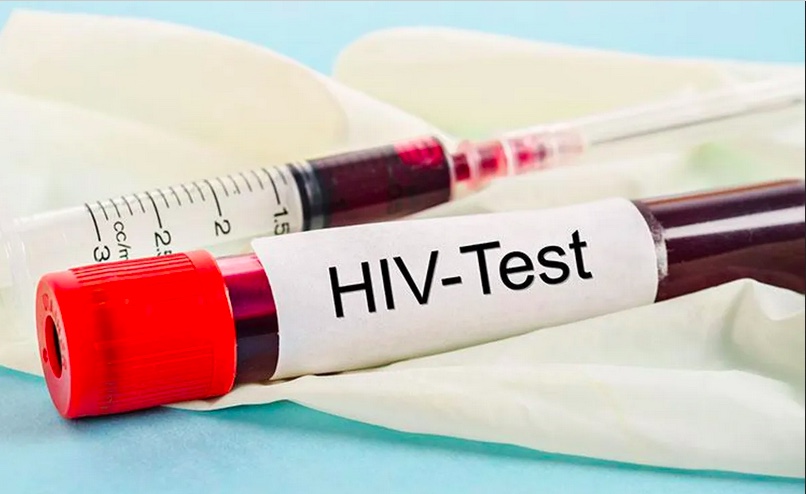BERLIN – The gap between rich and poor has grown in most developed countries over the past 20 years, leading to an increase in child poverty, an organisation of 30 leading economies said in a report yesterday.
“The gap between rich and poor has grown in more than three-quarters of OECD countries over the past two decades,” said the Organisation for Economic Co-operation and Development (OECD), an influential policy forum for 30 top world economies. Economic growth of recent decades had benefitted the rich more than the poor, it said in the report entitled ‘Growing Unequal: Income distribution and poverty in OECD countries.’ Across the OECD countries, the average income of the richest 10 per cent of people was, on average, “nearly nine times that of the poorest 10 per cent.”Canada, Germany, Norway and the United States were most affected by the widening gap between rich and poor, while Greece, Mexico and Britain had seen a shrinking gap, the study found.The danger of poverty was greatest in countries with the widest wage gap and lowest social mobility, it said.And the risk of poverty has moved away from older people and towards children and young adults.”Those around retirement age have seen the biggest increases in incomes over the past 20 years, and pensioner poverty had fallen in many countries.In contrast, child poverty had increased,” the study said.Children and young adults are now 25 per cent more likely to be poor than the population as a whole.”Child poverty has increased and is now above average for the population as a whole,” the OECD stated.”This is despite mounting evidence that child wellbeing is a key determinant of how well someone will do as an adult – how much they will earn, how healthy they will be, and so on.”The increase in child poverty deserves more policy attention than it is currently receiving in many countries.More attention is needed to issues of child development to ensure that no child is left behind.”Presenting the report at a news conference in Berlin, one of the study’s co-authors, Michael Foerster, said child poverty had risen in countries such as Germany, the Czech Republic, Canada and New Zealand.But child poverty was lower in countries where a large percentage of women worked, Foerster said.Britain had succeeded in reducing child poverty over the past five years.In the report, OECD Secretary General Angel Gurria warned of the dangers posed by inequality and the need for governments to tackle it.”Growing inequality is divisive.It polarises societies, it divides regions within countries, and it carves up the world between rich and poor,” he said.”Greater income inequality stifles upward mobility between generations, making it harder for talented and hard-working people to get the rewards they deserve.Ignoring increasing inequality is not an option.”Single-parent households were three times as likely to be poor than the population average, the OECD said.”And yet OECD countries spend three times more on family policies than they did 20 years ago.”In developed countries, governments had been taxing more and spending more on social benefits to offset the trend towards more inequality.Without this spending, it said, the rise in inequality would have been even more rapid.But new ways of tackling this issue needed to be found, Gurria said.”Trying to patch the gaps in income distribution solely through more social spending is like treating the symptoms instead of the disease,” Gurria said.”The largest part of the increase in inequality comes from changes in the labour markets.This is where governments must act.Low-skilled workers are having ever-greater problems in finding jobs.Increasing employment is the best way of reducing poverty,” he said.Nampa-AFPEconomic growth of recent decades had benefitted the rich more than the poor, it said in the report entitled ‘Growing Unequal: Income distribution and poverty in OECD countries.’ Across the OECD countries, the average income of the richest 10 per cent of people was, on average, “nearly nine times that of the poorest 10 per cent.”Canada, Germany, Norway and the United States were most affected by the widening gap between rich and poor, while Greece, Mexico and Britain had seen a shrinking gap, the study found.The danger of poverty was greatest in countries with the widest wage gap and lowest social mobility, it said.And the risk of poverty has moved away from older people and towards children and young adults.”Those around retirement age have seen the biggest increases in incomes over the past 20 years, and pensioner poverty had fallen in many countries.In contrast, child poverty had increased,” the study said.Children and young adults are now 25 per cent more likely to be poor than the population as a whole.”Child poverty has increased and is now above average for the population as a whole,” the OECD stated.”This is despite mounting evidence that child wellbeing is a key determinant of how well someone will do as an adult – how much they will earn, how healthy they will be, and so on.”The increase in child poverty deserves more policy attention than it is currently receiving in many countries.More attention is needed to issues of child development to ensure that no child is left behind.”Presenting the report at a news conference in Berlin, one of the study’s co-authors, Michael Foerster, said child poverty had risen in countries such as Germany, the Czech Republic, Canada and New Zealand.But child poverty was lower in countries where a large percentage of women worked, Foerster said.Britain had succeeded in reducing child poverty over the past five years.In the report, OECD Secretary General Angel Gurria warned of the dangers posed by inequality and the need for governments to tackle it.”Growing inequality is divisive.It polarises societies, it divides regions within countries, and it carves up the world between rich and poor,” he said.”Greater income inequality stifles upward mobility between generations, making it harder for talented and hard-working people to get the rewards they deserve.Ignoring increasing inequality is not an option.”Single-parent households were three times as likely to be poor than the population average, the OECD said.”And yet OECD countries spend three times more on family policies than they did 20 years ago.”In developed countries, governments had been taxing more and spending more on social benefits to offset the trend towards more inequality.Without this spending, it said, the rise in inequality would have been even more rapid.But new ways of tackling this issue needed to be found, Gurria said.”Trying to patch the gaps in income distribution solely through more social spending is like treating the symptoms instead of the disease,” Gurria said.”The largest part of the increase in inequality comes from changes in the labour markets.This is where governments must act.Low-skilled workers are having ever-greater problems in finding jobs.Increasing employment is the best way of reducing poverty,” he said.Nampa-AFP
Stay informed with The Namibian – your source for credible journalism. Get in-depth reporting and opinions for
only N$85 a month. Invest in journalism, invest in democracy –
Subscribe Now!






